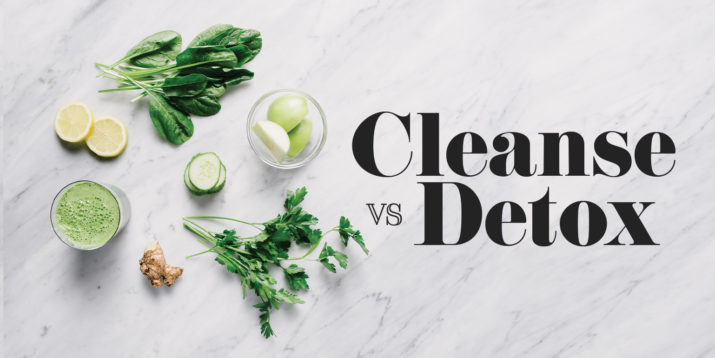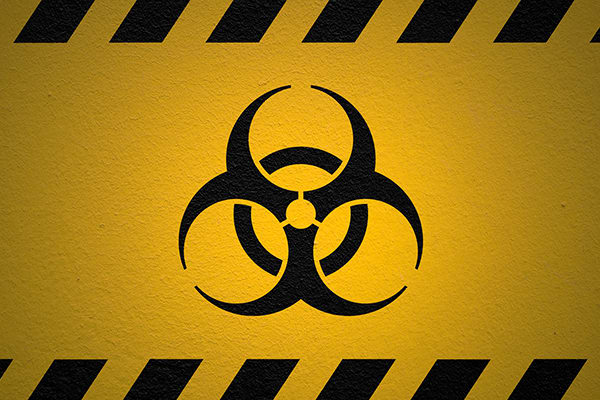Cleanse vs. Detox: What’s the Difference?

Note: This article is intended for our U.K. audience.
If you’re looking to break through a weight-loss plateau, beat the bloat, or get back on track after a calorie bender, someone has probably suggested trying a detox or a cleanse…or a detox cleanse.
Confusing, right?
People tend to use the terms “cleanse” and “detox” interchangeably, but it’s important to understand the difference.
Here’s what you need to know.
What Is a “Detox Cleanse” or “Detox Diet”?
Detox diets (or detox cleanses) are short-term, super-restrictive diets that consist of a small number of foods that claim to have “detoxifying properties.”
Some of these diets sound like straight-up torture.
Do you really want to drink lemonade mixed with cayenne pepper for 10 days straight or eat cabbage soup at every meal?
But more importantly, those foods won’t actually flush your system.
“‘Detox diet’ is kind of a misnomer, because food is not going to detox you,” says Denis Faye, M.S. and Beachbody’s vice president of nutrition.
It’s your liver and kidneys that help flush toxins from your body — not the food itself.
Plus, if your diet is too restrictive, your body may not be getting the nutrients it needs to carry out its natural processes.
How Does a Detox Cleanse Work?

Okay, so what exactly are these “toxins” that detox diets claim to flush out?
Toxins are potentially harmful substances we come into contact with every day — like pesticides on your produce, pollutants in the air, unpronounceable ingredients in processed food, or heavy metals like mercury and arsenic in the soil, to name a few.
Some diets also claim that foods like gluten, dairy, and refined sugar are “toxic.”
But unless you have an allergy or intolerance, there’s no reason to swear off these foods completely.
While anything can be toxic if you consume too much of it, your body is equipped to deal with most toxins (assuming you don’t fall face-first into a radioactive swamp).
So there’s no need to follow a buzzy “detox diet.”
Your body already does a top-notch job of detoxifying itself, as long as you support it with good nutrition.
But if you’re constantly skimping on nutrients and proper hydration, your body’s natural detoxification system can be inhibited — and that’s where a cleanse or reset can be beneficial.
What Is a Cleanse?
One way of looking at the difference between a cleanse vs. detox: Detox diets focus on “out with the old,” while a cleanse will also address the “in with the new” aspect.
Detox diets are meant to be short-term, but a well-designed cleanse can help you form new eating habits that support your body and help you stay healthy for the long haul.
And you can apply the principles of a cleanse to just about any aspect of your life — like stepping back from a toxic friendship or taking a social media break.
Potential Benefits of a Cleanse

“Your body wants to get rid of the unhealthy stuff, but if you keep eating more junk, you’re not going to be able to get the other junk out,” says Faye. “It’s like clogging a drain.”
By stripping your diet down to the essentials, you’ll give your liver and kidneys a chance to do their job more efficiently.
And it’s always a good idea to talk to your doctor before you make any significant dietary changes, especially if you’re on any medications or have an ongoing medical condition.
